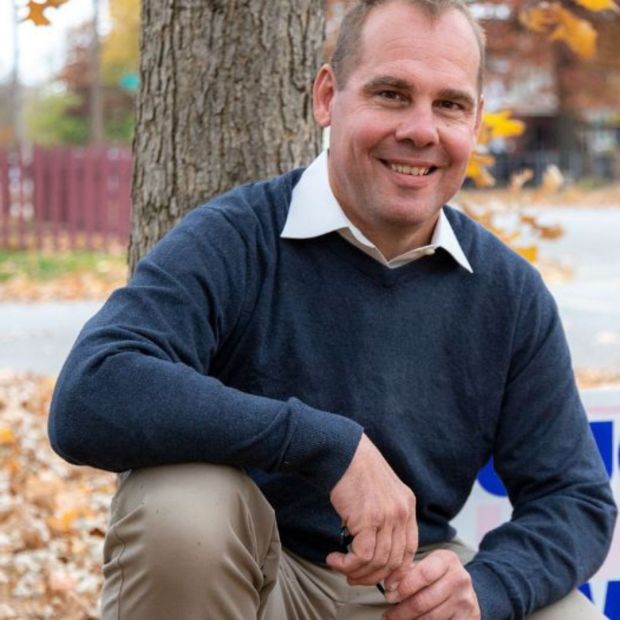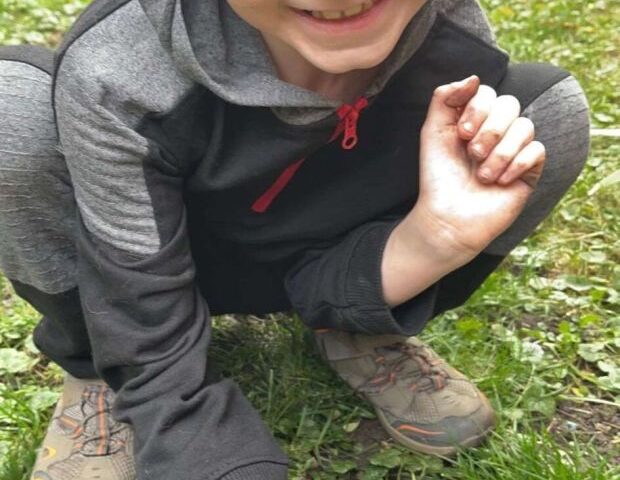Editor’s Note: This is one in a series of stories looking at candidates for mayor of Aurora in the Feb. 25 primary election.
John Laesch, currently an alderman at-large on the Aurora City Council, is running for mayor.
Early voting is currently available for the Feb. 25 primary election, which includes the Aurora mayoral primary. Also running for mayor of Aurora in the primary are incumbent Richard Irvin, Ald. Ted Mesiacos, Karina Garcia, Jazmine Garcia and Judd Lofchie.
Aurora residents will each get to vote for one mayoral candidate in the primary, and the two candidates with the highest number of votes in the Feb. 25 primary will move on to the April 1 general election.
Each of the mayoral candidates agreed to an interview with The Beacon-News. During Laesch’s interview, he said that he is running for mayor because, under Irvin’s leadership, he has been unable to move along the things he wants to do quickly enough and has been unable to stop “lucrative development deals for the mayor’s political insiders.”
There are two Auroras, Laesch said: One that works “incredibly well” for the mayor’s “buddies and his donors and developers,” and then there’s everyone else who “end up paying the tab.”
While Laesch’s family eventually ended up in the Aurora area, he spent most of his young life in Liberia, where his parents were missionaries. That experience taught him from a young age that there were “ways to live other than consumer capitalism,” taught him that every human being has value and should be treated with dignity and taught him how to be a creative problem-solver that thinks outside of the box, he said.
Laesch, 12 years old at the time, along with his family evacuated the West African country in 1986 after an attempted coup, eventually settling on a farm in Newark, he said. There, he worked various jobs ranging from a pig farm to starting his own small business to save money for college, Laesch said.
Using those funds, Laesch attended Knox College but quickly ran out of money, he said. Instead of taking out student loans, he dropped out, went home and started working again while attending Waubonsee Community College, Laesch said.
He then joined the Navy and became a Naval Intelligence Analyst, according to Laesch. He served in the Middle East for about three years, he said, then returned to the U.S. and graduated from Waubonsee Community College with an associate’s degree and then started attending Illinois State University, which he graduated from with a bachelor’s degree in history, he said.
Laesch then started an advertisement firm for local bars and also started to get involved in politics, working on Dennis Kucinich’s unsuccessful run for president and David Gill’s unsuccessful run for representative of Illinois’ 15th Congressional District, both in 2004. He then unsuccessfully ran against incumbent Republican Dennis Hastert for Illinois’ 14th Congressional District seat in 2006, then again lost in the primary for the same seat to Bill Foster in 2008.
Around this time, Laesch also became a carpenter and spent the next few years “just trying to survive financially,” he said. His focus had shifted more toward community organizing, and those efforts led him to look more closely at the education system, which led to him running for East Aurora School Board in 2015.
The campaign was successful, and he stayed on the board until 2019.
Laesch worked on several campaigns while on the school board and after, then unsuccessfully ran for mayor against Irvin in 2021. In 2023, he ran for alderman at-large because of the Hollywood Casino-Aurora project and won the seat, he said.
Now, in his second bid for mayor of Aurora, Laesch said he would work toward three things if elected: bringing living- wage jobs to the city, fostering a “green collar economy” and ethics reform around campaign financing.
While Laesch consistently votes against economic incentives for developers, he said that he is OK with subsidies for businesses as long as they bring in living-wage jobs.
“Aurora has to subsidize restaurants, grocery stores and even apartment buildings that go to Geneva or Naperville with no problem,” Laesch said. “The reason that they do it is because there’s a customer base over there, and we don’t have that customer base.”
However, because the city is subsidizing these businesses, many Aurora residents cannot afford them, according to Laesch. He said the city needs to find a way to bring in higher-paying jobs and address the poverty level, and once people start getting more money, they can start to afford to spend more money on supporting local businesses the community actually wants and can afford, he said.
One of the ways Laesch said he proposes to bring in higher-paying jobs is by “positioning Aurora for the green collar economy that’s coming.”
That includes encouraging businesses that create innovative building materials to move to Aurora, and while government subsidies to these businesses may help, a different structure may work better, according to Laesch. He said incentives could go toward homeowners, especially by working with the Illinois Climate Bank, to create a local market for these businesses.
That local market, combined with the city’s existing easy access to major transportation networks, would make Aurora a great place to be located for these businesses, Laesch said.
However, this idea would depend a lot on the federal government’s support, which is “a big question mark right now,” he said.
A major topic Laesch has also brought up in his previous run for mayor against Irvin is campaign financing ethics. He has accused Irvin of “pay-to-play,” or prioritizing government contracts or incentives to those who donate to his campaign, which Irvin has denied.
Laesch has previously said that, while Irvin does not appear to be doing anything actually illegal, campaign donations to Irvin still seem to influence Irvin’s and the city’s decision-making, he said.
To solve this issue, Laesch said he would lobby for publicly funded campaigns, similar to how Arizona’s “clean election” laws work. While candidates could still choose to raise funds privately, a candidate could instead declare themselves to be a “clean elections candidate” and accept public funds rather than donations, he said.
One thing that sets Laesch apart from his opponents is his voting record, he said. While other candidates may say they voted against budgets, Laesch also voted against the individual items that led to the spending, he said.
Laesch is against the City of Lights Center, a proposed 4,000-seat theater and 600-person event space downtown, although was not against the expansion of RiverEdge Park, he said. The city needs to test if bigger entertainers will come to the city through the expanded RiverEdge Park, he said, before looking to build something like the City of Lights Center.
Fellow mayoral candidate Jazmine Garcia said Monday that she was planning to suspend her campaign and instead endorse Laesch. In a statement posted to her campaign Instagram, she said that he shares her campaign’s commitments to “fighting corruption, to restoring trust,and to ensuring that the people of Aurora have a government that works for them.”
Also endorsing Laesch are the College Democrats of the University of Illinois Chicago, District 1 Kane County Board member Myrna Molina and District 5 DuPage County Board member Saba Haider, according to a newsletter from Laesch’s campaign.
rsmith@chicagotribune.com




